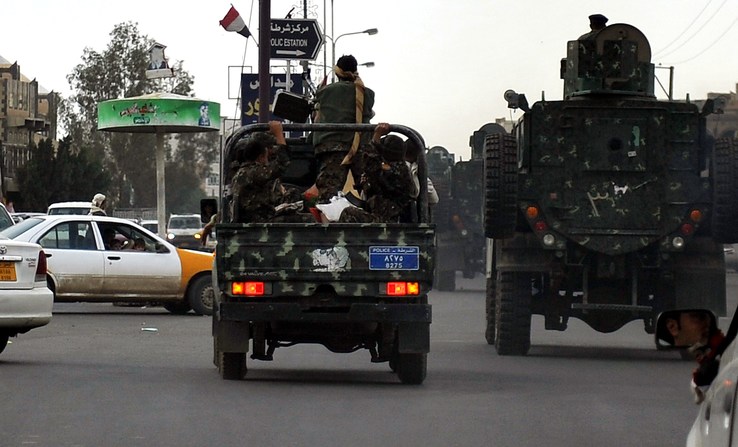WASHINGTON: The United States on Tuesday strongly criticized Egypt s decision to approve a two-year extension of the Emergency Law President Hosni Mubarak slapped on the country 25 years ago after the assassination of his predecessor Anwar Sadat.
State Department spokesman Sean McCormack noted that during last year s presidential campaign Mubarak said he was going to seek a new law that would be targeted specifically to terrorism and counterterrorism and would take into account freedom of speech and human rights.
Certainly we would like to see President Mubarak, and his parliament, follow through on that pledge. McCormack said. So with respect to this particular action, I can only say we are disappointed.
Parliament on Sunday voted 287 to 91 to extend the law beyond its May 31 expiration. It gives security forces broad powers to arrest and detain suspects and has been criticized by human rights organizations.
McCormack said the United States understands that Egypt has issues with terrorism, alluding to last week s deadly bombing in a Sinai resort that killed at least 19 people.
He said the United States had hoped the Egyptian government would use the time between the elections and now to work on a new law but it now looks like the Emergency Law is going to extend for at least two years.
I would characterize that as a real disappointment to us, he said.
The United States, Egypt s top source of foreign aid, had urged an end to the emergency measure as part of a larger strategy to democratize the Arab World s most populous nation.
Members of the Muslim Brotherhood wore black sashes inscribed with the slogan No to the Emergency Law to the legislative session Sunday. Last week, Egyptian authorities reportedly detained more than 40 members of the banned Islamic group, including 25 as they were hanging posters which read: Together against extension of the Emergency Law.
Emergency Law No. 162 of 1958 was due to expire in May 2003. A measure was passed months before its expiration to extend the law until May 2006. As part of his bid for reelection last September, President Hosni Mubarak vowed to do away with the Emergency Law and in its place, put anti-terrorism laws similar to those passed in the United States and Britain.
“The president, in his election platform, called for drafting of an anti-terrorism law to replace the application of the state of emergency, notes Mohammed Kamal, a member of the influential policies secretariat. “The party has formed a committee to study a new anti-terrorism law. It’s not going to be as general and wide in scope as the emergency law. In general, the Egyptian constitution, drafted in 1971, grants overwhelming power to the president, who has the authority to appoint the prime minister, one or more vice presidents, the entire cabinet and governors for each governorate. The constitution also declares that cases involving terrorism and national security may be tried in military or State Security Emergency courts.
“You know the Emergency Law is in place for the purpose of strengthening the national forces, says George Ishaq, one of the founders of the Kefaya opposition movement. “They are doing this to stifle any opposition. It is only for the [government’s] benefit so that all of the people who are arrested were arrested for no legitimate reason and this is how it will continue now that it has been renewed. “This decision is completely against the wishes of the people of Egypt, adds Essam El-Arian, a spokesman for the Muslim Brotherhood. “The government admitted that it would renew this law. We will not stop our campaign against the law. It is against any opposition in general. It is definitely against the Muslim Brotherhood. It should only be used in emergencies, not against the people trying to help this nation. Agencies


